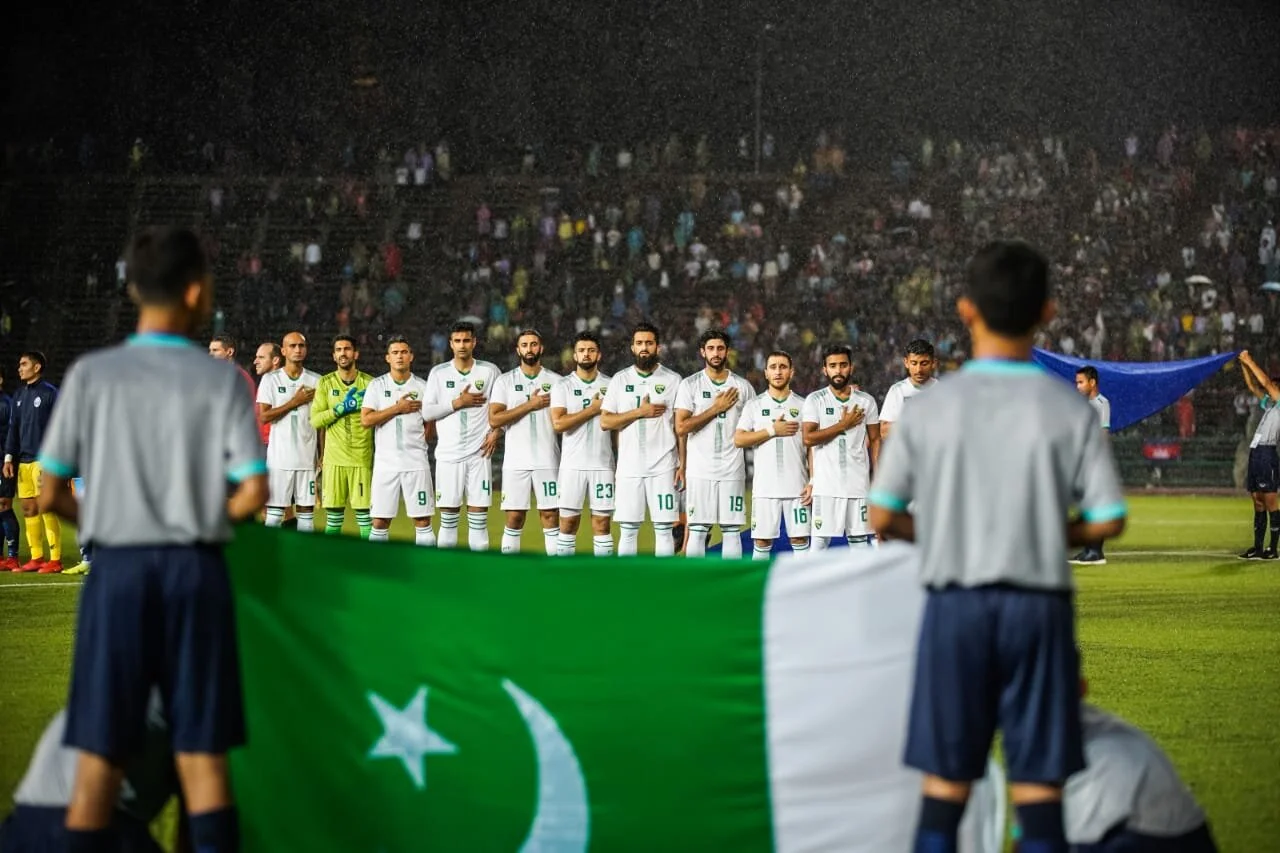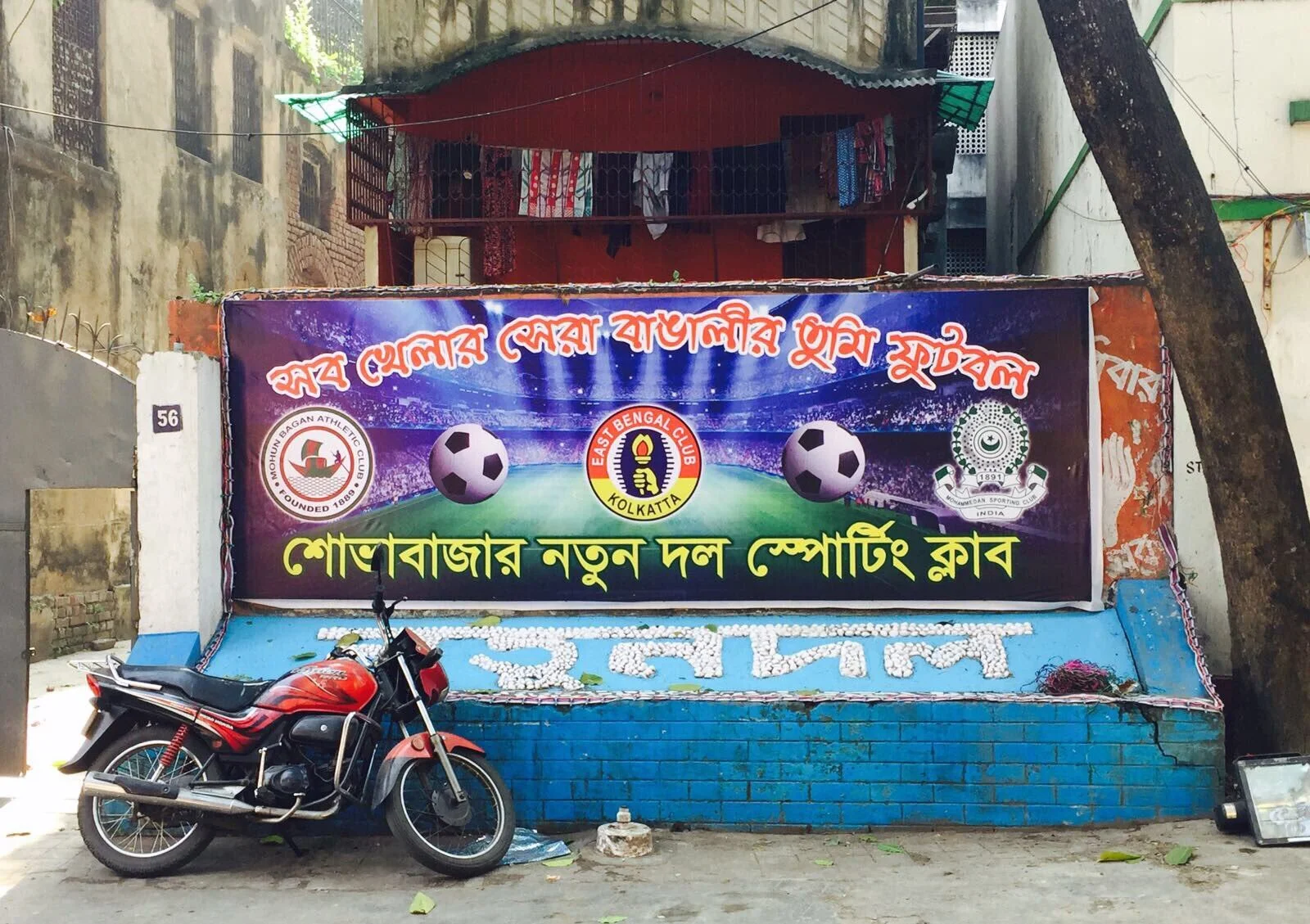Soon after BabaGol and I last spoke about Pakistani football, the country went on to lose the all-important 2018 FIFA World Cup qualifier against Yemen in an agonizing 3-1 defeat.
Little did we know that the next five years would be equally agonizing.
Globally, football and politics go hand in hand. Top ranks of organizations such as FIFA and the Asian Football Confederation (AFC) host oil-rich Sheikhs, Princes of wealthy states and businessmen looking to leave their mark, and maybe make a buck off of the beautiful game.
The Pakistan Football Federation (PFF) fared along similar lines, dominated by Faisal Salah Hayat, a former Interior Minister, who ruled with an iron fist since his first election into power in 2003. But as I remember, 2015 could have been a watershed moment for Pakistani football.
Aiming For The Stars, Without Working For It
The hype around the FIFA World Cup qualifier was unprecedented, courtesy of the continuous efforts of the team at FootballPakistan.com, and the 2nd leg was expected to be graced by a boisterous, full home crowd at the Punjab Stadium in Lahore.
However, the untimely Youhanabad bomb blast only a day before the game built up a sombre atmosphere, reflected in a drab goalless draw in Bahrain sending Pakistan home. But following that defeat, in June 2015 fissures in Pakistani football blew open.
Faisal Salah Hayat’s re-election was marred by the opposition’s claim of poll rigging and threw the game into disrepute. The Lahore High Court intervened and appointed an administrator to oversee matters, but the attention was fully focused on the election process.
FIFA saw the never-ending ruckus and banned Pakistan in October 2017, recognizing that power lay with the Faisal Salah Hayat recognized body. After power was restored to the party, the ban was lifted and the fans witnessed the return of international football to the country after three years. Alongside much excitement, the team approached the 2018 SAFF Championship with little expectations.
But buoyed by the return of stalwart players such as Hassan Bashir, Muhammad Ali, Yousuf Butt, Muhammad Riaz and Yaqoob Butt, the team started in style, grabbing an injury-time winner against Nepal.
Despite putting up a valiant show against Bangladesh, the Pak Shaheens were hard done by a 1-0 loss and were off to play a group-defining fixture against Bhutan. With enough firepower up-front, Pakistan managed to win 3-0 and gain a spot in the semi-finals for the first time since 2005.
And as fate would have it, it was arch-rivals India who came up as opponents with their team comprising of mostly U-23 players. Having only recently returned to action, Pakistan were undone by a superior India 3-1, but the Shaheens were back in action and embarked on a series of friendly games to prepare for the 2022 FIFA World Cup qualifiers.
Camps were held in Qatar, and a friendly match against Palestine was held in November 2018. The new-look Pakistan played well despite losing 2-1. However, just as things were straightening out, politics raised its ugly head once again and the Supreme Court of Pakistan held elections under their tutelage and demanded handing over of the PFF to the new boss Ashfaq Hussain.
2022 World Cup: An Unachievable Dream
Pakistan’s participation at the 2022 FIFA World Cup qualifiers was in jeopardy but Faisal Salah Hayat utilized his position effectively and managed to send the team directly to compete against Cambodia, with the squad training and playing their home leg abroad.
Luck has never favoured Pakistan when comes to FIFA World Cup qualifiers; the 2022 edition wasn’t any different. The Shaheens found themselves facing a rising Cambodia side that came armed with a 30,000 strong home crowd, led by Keisuke Honda in the coaching department.
But for about 80 minutes, the tactics of Brazilian boss Jose Antonio Nogueira seemed to work. Having added talent of mostly diaspora players due to the political problems at home, the tactician sewed up a haphazard defence comprising of Zesh Rehman, midfielder Muhammad Riaz, Rahis Nabi and Umer Hayat that did well to keep the Cambodians at bay. But on the 81st minute, Sieng Chanthea smashed one in from close range and the damage was done, with Cambodia adding another a few minutes later.
The 2nd leg was scheduled to be held in Doha and bared a lot of resemblance to what had transpired in 2015; Pakistan was down on their luck and needed to turn around the tie with an early goal. Things did not look good, the Cambodians were technically strong and had the luxury of soaking up pressure courtesy of their 2-0 lead, but Hassan Bashir’s penalty raised Pakistani hopes of a comeback.
But as has been the case for the last few years, Pakistan capitulated, allowing Cambodia to add two more goals and seal the game with a 4-1 aggregate win. Yet again, the Shaheens were out of another World Cup cycle.
FIFA Intervenes, Companies are Interested: A Change is Coming?
After the disappointing tie, FIFA finally decided it was time to intervene and sort out the continuing mess in Pakistani football, sending in a Normalization Committee in September 2019 to conduct elections and transfer power.
The process, which should have ended by now, was postponed in the wake of the COVID-19 pandemic that changed the outlook of global sports. The elections are expected to be held this coming December, and while there hasn’t been any real cause for optimism in the last 70 years, a wind of change is softly blowing through the ranks.
The private sector, which often disregarded football as a game nobody followed in Pakistan, has shown interest in developing the sport. Leisure Leagues, a UK-based provider of small-sided leagues, launched their football project in 2016 and conducted the country’s 1st international football event in 2017 bringing the likes of Ronaldinho, Ryan Giggs, Robert Pires and Nicolas Anelka for two exhibition matches.
Brands such as Coca-Cola, RedBull and Ufone have used football as an advertising tool to critical acclaim; And calls for a new, revamped football league that can rival what the Pakistan Super League (PSL) has done for cricket have increased. And so, for the first time, there is hope that once a new party comes into power, there could be steps taken to finally help realize the country’s burgeoning potential in football.
Shahrukh Sohail is a journalist and a sports entrepreneur based in Islamabad, Pakistan. He was first interviewed in BabaGol five years ago, now working to create a better present and future for Pakistani football.




